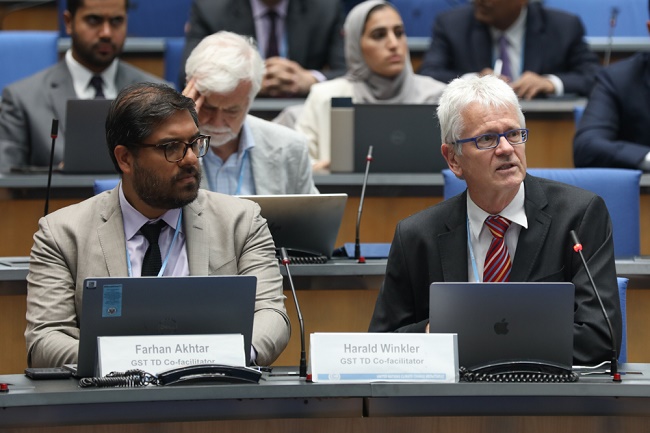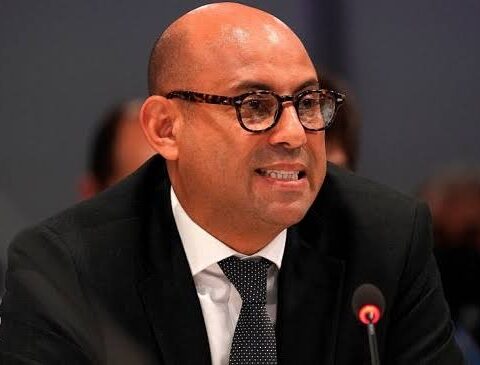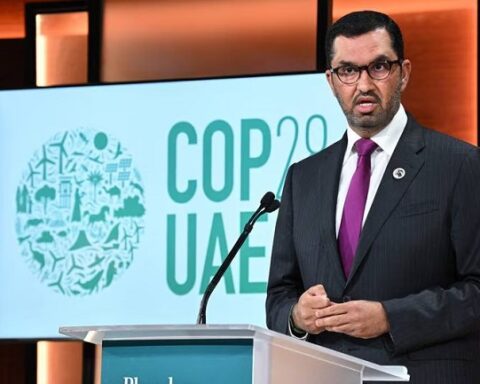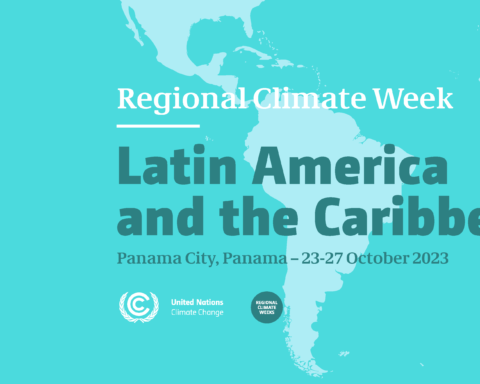A key technical report on the global stocktake published on Friday, September 8, 2023, has revealed that many creative and actionable solutions to overcome climate challenges are ready to be implemented.
It added that while Parties to the 2015 Paris Agreement have taken widespread actions to address climate change and its impacts, ambition and implementation must be accelerated rapidly.
The global stocktake was designed under the Paris Agreement to assess the global response to the climate crisis and chart a better way forward. The global stocktake is held every five years and is intended to inform the next round of nationally determined contributions to be put forward by 2025.
The global stocktake started with a data collection phase in 2021, collecting a wide range of inputs from Parties, international bodies, and non-party stakeholders.
A technical dialogue was carried out across three meetings in 2022 and 2023 and was chaired, with the assistance of the UN Climate Change secretariat, by two co-facilitators Farhan Akhtar and Harald Winkler, nominated by developed and developing countries respectively.
The scope of technical discussion was very broad, including mitigation, adaptation, and support, as well as loss and damage and response measures. Cutting across all these topics were ambition and equity – all informed by the best available science.
“The technical dialogues were based on the best available science, drawing on the latest findings of the Intergovernmental Panel on Climate Change (IPCC) and other sources of knowledge, with broad participation of experts and non-party Stakeholders with diverse backgrounds.
“Across the discussions, it was clear that the Paris Agreement has inspired widespread action that has significantly reduced forecasts of future warming. This global stocktake is taking place at a crucial moment to inspire further global action in responding to the climate crisis,” said Akhtar.
The synthesis report of the technical dialogue published today summarises 17 key technical findings from the discussions. Across the topics, the report makes clear that there is progress, but much more needs to be done.
While there are well-known gaps, the technical findings highlighted existing and emerging opportunities and creative solutions to bridge these gaps. Good practices and proposals to accelerate implementation, action, and support, are highlighted in all areas.
The report lays a strong scientific and technical base for the conclusion of the first global stocktake in Dubai, in the United Arab Emirates, at the UN Climate Change Conference COP28.
“More than 137 non-Party stakeholders submitted input on their actions and support for the Paris Agreement goals, in total over 170,000 pages of written submissions were received, and we had over 252 hours of meetings and discussions over the three meetings of the technical dialogue – in plenaries, roundtables, and world café formats. As the report’s technical findings show, much more is needed now, on all fronts and by all actors to meet the long-term goals of the Paris Agreement,” said Winkler.
During this final phase – the consideration of outcomes, a series of high-level events will be held to discuss the implications of these technical findings. These discussions will inform a decision and/or declaration summarizing key political messages, and identifying opportunities, good practices, and challenges to enhance climate action and support.
COP28 President-Designate Dr. Sultan Al Jaber said the global stocktake report provides clear direction on how we can meet the expectations of the Paris Agreement by taking decisive action in this critical decade.
“To keep 1.5 within reach we must act with ‘ambition and urgency’ to reduce emissions by 43% by 2030. That is why the COP28 Presidency has put forward an ambitious action agenda centered around fast-tracking a just and well-managed energy transition that leaves no one behind, fixing climate finance, focusing on people’s lives and livelihoods, and underpinning everything with full inclusivity.
“I believe we can deliver all of this while creating sustainable economic growth for our people, but we must urgently disrupt business as usual and unite like never before to move from ambition to action and from rhetoric to real results,” added Al Jaber.
Al Jaber further added: “I am calling on leaders from both the public and private sectors to come to COP28 with real and actionable commitments to address climate change. We need to rapidly decarbonize both the supply side and demand side of the energy system at the same time.
“We need to triple renewable energy by 2030, commercialize other zero-carbon solutions like hydrogen, and scale up the energy system free of all unabated fossil fuels, while we eliminate the emissions of the energies we use today. We need to protect and enhance nature, safeguard carbon sinks, and transform food systems that account for one-third of emissions. And we need fundamental reform of the international financial architecture that was built for the last century.”
Simon Stiell, Executive Secretary of UN Climate Change, said: “I urge governments to carefully study the findings of the report and ultimately understand what it means for them and the ambitious action they must take next.
“It’s the same for businesses, communities, and other key stakeholders. While the catalytic role of the Paris Agreement and the multilateral process will remain vital in the coming years, the global stocktake is a critical moment for greater ambition and accelerating action.”
By Dare Akogun








